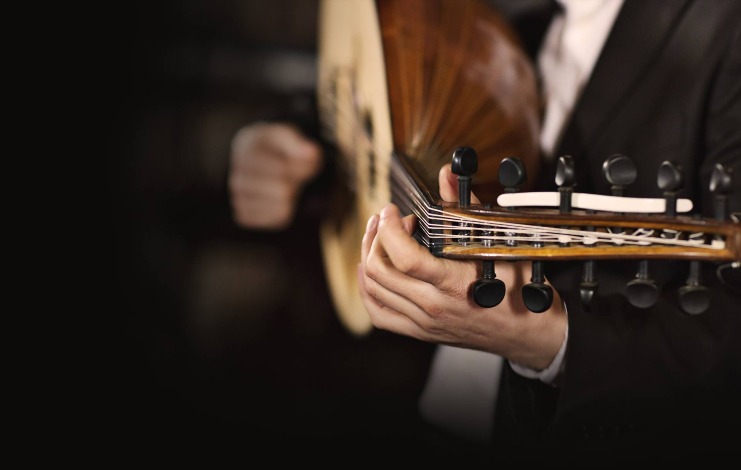Ah, music, a different language that affects people on various levels; so much that it sometimes doesn’t really matter what the singer is saying as long as the flow of words and rhythm can surpass their meaning and hit you in the feels like nothing else. It’s moments like these when you feel as if the song was written for or about you.
There’s no doubt that every region has its own set of musical styles. The Middle East’s music tree has a multitude of intertwining branches spanning genres and rhythms, making no two countries within it sound the same, yet, all of them have a common ancestor that unites them, be it language, the famous Arabic harmonic scale, or the overall vibe.
With the world being what it is, cultures over centuries have influenced each other in some way or another, it’s safe to assume that the Middle East affected the world around it either through the transfer of knowledge, trade, or immigration, with those immigrants sharing their own cultures with others in their new homes.
In this article, we’re going to dive into how the Middle East influenced Western music over recent years and how it’s still doing that today.
Middle Eastern Culture Seeping Into Western Music
Something you need to take note of is that since the early 20th century, Arabs immigrating to the US have always shared their Middle Eastern culture whether it is through small gatherings, playing in public, or joining festivals and clubs, their music has become slowly integrated with the west.
They would also ensure that the culture lives on by teaching future generations their music. However, these new generations would later mix what they learned with western influences creating something unique; an early example of that would be Dick Dale in the 1960s and the song “Misirlou.”
“Misirlou” was very popular in the 1920s but didn’t have a widespread appeal outside Arab, Greek, and Turkish communities, that said, Dale would change all that in 1962. Dale learned of the song from his Lebanese uncles and added his own surf-rock twist to it, making it appeal to western listeners and famous in the process.
“Misirlou” would continue to grow and appear in other mediums like the movie “Pulp Fiction,” even the Black Eyed Peas sampled it in their song “Pump It” in 2009.
Arabic music didn’t stop there as it would mostly make appearances as samples in several songs, such as “Khosarah” by Egypt’s icon, Abdel Halim Hafez in the highly controversial song “Big Pimpin’” by Jay Z in 2000.
Of course, since Latin culture and the Middle Eastern’s share some of the same features, especially when it comes to rhythm. Some artists incorporated it into their music, the most memorable of which is none other than Shakira, and her 1998 song “Ojos Asi” that had undeniable Arabic tones and melodies; even the lyrics included references to Bahrain and Beruit.
Shakira, who is part Lebanese, shared her Middle Eastern heritage during the 2020 Superbowl while on stage with Jennifer Lopez, ululating a Zaghrouta in the middle of her performance turning heads in the process.
However, things have evolved since then, as several Arabs have made it into the western music mainstream, such as Palestinian DJ Khalid and Producer FredWrek. There’s also Moroccan-Swedish singer and songwriter RedOne, who the Grammys consider as one of the most influential producers in history, earning ten Grammy nominations throughout his career.
Some are also taking part behind the scenes, like Drake’s Lebanese manager Oliver El-Khateeb, maybe he’s the one who influenced Drake to add some Arabic lyrics to his song “Only You Freestyle,” which would be awesome if it were true.
One of the biggest singers in the MENA region, Amr Diab, also took a step towards Middle Eastern and Western collaboration. Diab worked with famed music producer Marshmello in 2018 to create a song that would fit perfectly with the two cultures without losing any of either’s influences, leading to the release of “Bayen Habeit.”
In the modern age, wokeness and diversity are taking a more extensive role within the western world, leading to the inclusion of several cultures that weren’t as obvious before. People can see this inclusion within the world of movies and TV more, with the most recent example being Marvel’s “Moon Knight.”
Egyptian showrunner Mohamed Diab decided to share Egyptian and Arabic music with the world during the end credits and some scenes within the show itself, offering viewers something unique.
First-time listeners received these new songs well, even though many of them stated they didn’t have a clue what the singers were saying, yet found them entertaining.
Music is an ever-evolving creature that will have mesh and melds from all parts of the world. While the Middle East continues to have a unique style and rhythm, it will continue to influence the world around it for centuries to come.
WE SAID THIS: Don’t Forget… 7 Things You Didn’t Know About Egypt’s Cinderella Soad Hosny



